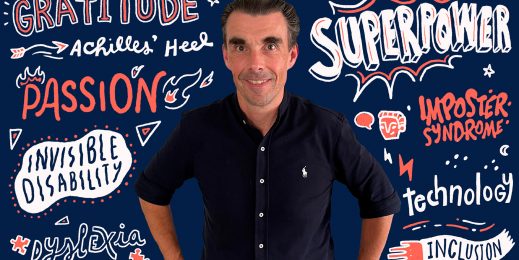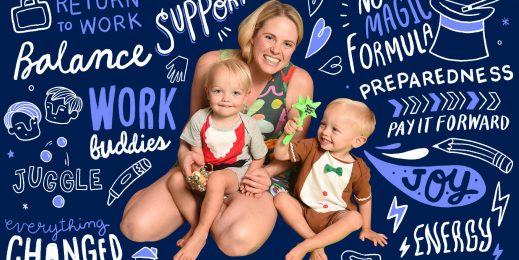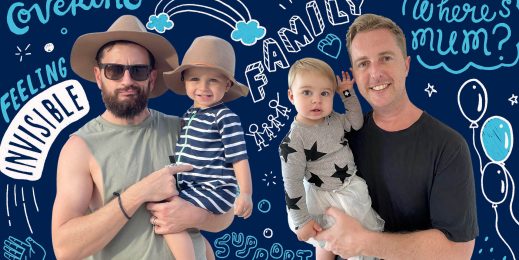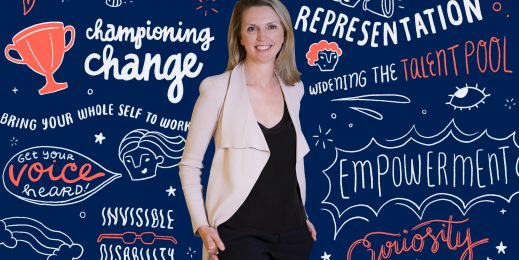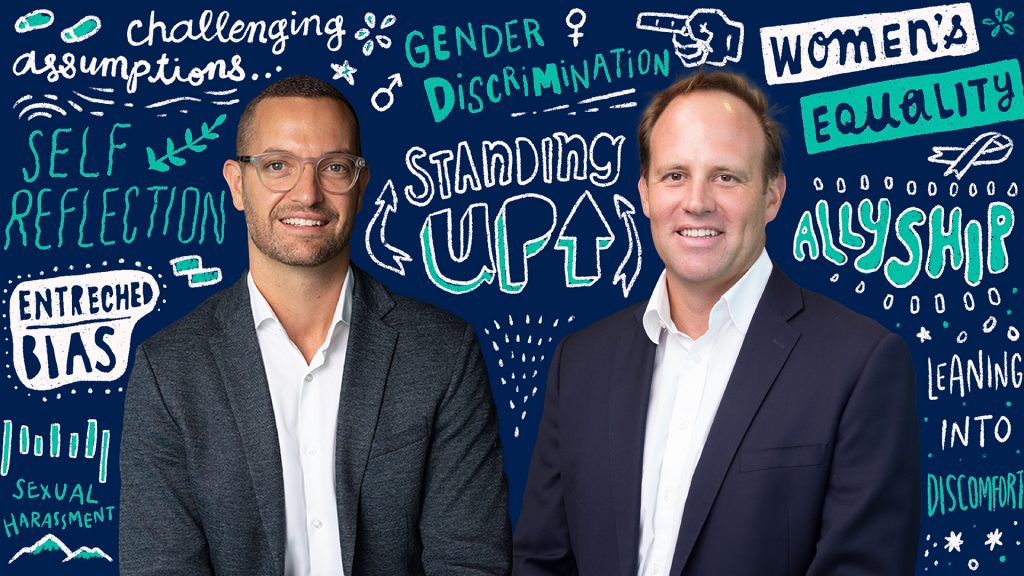
Calling all allies: Why women’s inclusion is everyone’s issue
By Pip Arthur, Modern Work Business Group Lead
When I became Chair of Microsoft’s Diversity and Inclusion Council here in Australia, I noticed something interesting.
When it comes to gender equality in the workplace, people who identify as women tend to lead the charge. We’re the ones you can usually find sitting in on diversity and inclusion meetings, facilitating workshops and sharing our experiences in the hope of inspiring change.
This work is necessary, of course. We need to hear the voices of those at the coalface, and that’s why we invited Liz Broderick, Australia’s longest serving Sex Discrimination Commissioner, and Kate Ellis, former MP and author of Sex, Lies and Question Time, to address Microsoft ANZ employees at our STAND UP event last October.
STAND UP was all about working together to take action against sexual harassment, sex and gender discrimination, and everyday sexism.
I know that Liz and Kate’s voices acted as powerful spurs to action for all our employees. But both women agreed that listening to their stories wouldn’t cut it. For real, systemic change, they said, we need men to stand up as well.
I recently sat down with two male colleagues of mine who are determined to answer this call for male allyship: Dom Pringle, who leads Microsoft’s Small Medium Corporate business in New Zealand, and Duncan Taylor, who leads our Consulting Services business here in Australia.
I wanted to hear about the road each man had travelled to become a better ally. I wanted to ask what they had learned from Liz’s and Kate’s stories. Most of all, I wanted to find out how they were planning to put those learnings into action.
Here are their stories.
“I was worried I would get it wrong”
As Dom prepared for STAND UP, he was abuzz with nerves.
Partly, it was showbiz jitters: a member of the Women@Microsoft Employee Resource Group in New Zealand, Dom was due to sit on a post-event panel that would be streamed to thousands of employees and hundreds of Microsoft partners. But there was something else happening, too.
“I kept thinking, ‘What if I say the wrong thing?’,” he remembers. “It was almost like I was right back there in my very first Women@Microsoft meeting years ago, worried I would get it wrong.”
Duncan, who tuned in to the event as an audience member, felt some trepidation as well.
“I had a fair bit of discomfort and anxiety, especially about what I might hear from my team in our post–STAND UP discussions,” he says.
Like Dom, Duncan was worried he’d say the wrong thing and inadvertently make the problem worse. He explains:
As a man, you don’t necessarily have a lot of confidence in your own thinking around this issue.
“But I remembered that one of our inclusive capabilities at Microsoft is to demonstrate courage. So, I was very aware that I needed to lean into that discomfort.”
“I was absolutely shocked”
Duncan and Dom might have been preoccupied with their own discomfort in the lead-up to the event. But as soon as Broderick and Ellis began to speak, each man was riveted – and appalled – by what they were hearing.
“I was absolutely shocked at the fact that it was happening in plain view,” Dom says of Ellis’s speech, which focused on the harassment she had witnessed and experienced in Canberra. “And that it was accepted by people you would look up to as senior figures in society.”
Duncan, on the other hand, was floored by the sheer prevalence of the more covert behaviour. “I don’t think I’d fully appreciated just how widespread this was,” he says.
He also began to think about more covert instances of sexism he had witnessed or even been a part of during his career – situations that had appeared benign but seemed more significant in retrospect.
“I heard one story from a woman who was talking to her male manager after coming back from maternity leave,” remembers Duncan. “The manager kept asking, ‘Are you sure you’re ready to come back? Are you sure you’ve spent enough time with your child?’
“The woman was actually made to feel guilty for returning to work. I think the manager was asking out of genuine care, but at the same time, would he have had that same conversation with a male parent?”
“That was a key thing for me,” Duncan concludes. “Learning how unconscious a lot of this behaviour is, to the point that men – including myself, because I’m sure I’ve said similar things before – often aren’t even aware of the impact they’re having.”
Battling our biases
Dom agrees that STAND UP was a major catalyst for self-reflection.
It was a moment to stop and look back on some of the things I’ve done personally, or seen happen.
“I began to think about how, earlier in my career for example, it was very normal to go and do business in a pub. We wouldn’t be thinking about the fact that there were no female colleagues there, or team members who didn’t drink.”
In fact, Dom has been making these kinds of reflections a priority ever since joining the Women@Microsoft group some years ago. As part of Microsoft’s allyship training, for instance, he took an implicit association test to measure his unconscious bias against women.
“I’d been in Women@Microsoft for three or four years at this point, so I thought I would be free of any prejudices,” he says. “Then the test showed that I do still have these biases, and that was quite confronting. But it was a good reminder that we need to be constantly self-reflecting, calling out our own behaviours and thinking about where we might be demonstrating those biases.”
Putting allyship into action
We know that allyship starts with listening and learning – but it doesn’t end there. Dom and Duncan are both aware that, to create meaningful change, they need to act.
Right now, Dom’s focus is #10KWāhine, a Microsoft initiative that’s all about upskilling and empowering 10,000 New Zealanders who identify as women to start careers in tech. He is particularly interested in helping mid-career candidates, who may be returning to the workforce from maternity leave, for example, or been displaced by COVID, to find work in the sector.
For his part, Duncan is working to even out the gender balance in Microsoft’s consulting business. “Now that we’re close to 50 per cent women,” he says, “the focus is on creating a speak-up culture so that women on our team don’t suffer from discrimination.”
Although Duncan and Dom are focused in different areas, their ongoing allyship journeys have one important one thing in common: they’re going to keep listening and learning.
“It was only when I heard women talking about their experiences that I realised my initial thinking wasn’t sufficient,” says Duncan. “When you’re not aware, it’s easy to minimise or rationalise certain types of behaviour. The power of those stories is that they shine a light on the issue. And now I’ve got that awareness, I’ve got a responsibility to take action.”
Find out more about how the people of Microsoft are learning to become better allies – and access resources to help you along your own allyship journey – at our Inclusion Journey content library.





